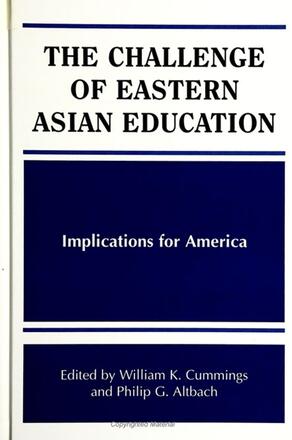
The Challenge of Eastern Asian Education
Implications for America
Alternative formats available from:
Provides specific examples of Asian educational practice that may have relevance to the United States.
Description
The Challenge of Eastern Asian Education highlights how Asian education policy and practice challenge American schools. The book focuses on innovations that the nations of the Pacific Rim have developed for their schools, and it analyzes how these educational systems have tried to meet the challenges of rapid social and economic change. It is unique in that it provides in-depth coverage of the Asian approach to education and explicitly discusses the implications of Asian education for America.
There is special interest in Asian countries, not only because of their unparalleled economic success, but because Asian societies have been held up as models for social harmony and discipline. This book provides specific examples of Asian educational practice that may have relevance to the United States. It is unique in that it deals not only with Japan, which has received considerable attention, but with other Pacific Rim nations as well.
William K. Cummings is Professor and Director, Comparative and Global Studies in Education, State University of New York, Buffalo. Philip G. Altbach is Professor and Director, Center for International Higher Education, Boston College. He has edited several books, including Emergent Issues in Education: Comparative Perspectives (with Robert F. Arnove and Gail P. Kelly) and The Racial Crisis in American Higher Education (with Kofi Lomotey), and has authored The Knowledge Context: Comparative Perspectives on the Distribution of Knowledge, all published by SUNY Press.
Reviews
"There's nothing quite like this book. The organization of the topics is a plus, distinguishing between basic and secondary and not ignoring the private sector. The selection of authors is first-rate with a good mix of Asian and American experts. The introductory article by Lewis is a classic and sets the tone well—children bonding with the concept of school—and moving on to reforms, some economic analysis, and concluding with the nonformal sector of juku in Japan." — John N. Hawkins, UCLA Graduate School of Education, Comparative Education Dean, UCLA International Studies and Overseas Programs